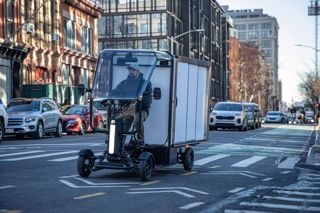A lack of clarity over responsibility for business travel is leading to inefficiencies, according to fleet decision makers surveyed by Alphabet.
The research reveals that the majority of organisations are so focused on reducing the hard costs of business travel that they fail to consider wider key elements of the business mobility mix that could be adding significant costs to their travel spend.
Hard costs are considered such as company cars (90%), fuel management and reimbursement (82%), and rental vehicles (79%), with public transport costs, environmental impact and staff administration time often being overlooked. As a result, businesses could be spending as much as £10 million on getting their employees moving from A to B, yet without considering the wider cost.
The companies surveyed spent an average of £2.3 million a year on what they consider to be business travel expenses, however, 74% believe they could make savings.
The reason for the oversight appears to be a lack of clarity over ownership for different areas of business mobility, with the majority of fleet managers assuming that these areas fall outside of their remit. Yet, as the fleet landscape continues to evolve and disciplines such as finance, fleet management and HR continue to merge, businesses run the risk of these inefficiencies soon becoming exposed.
Martin Quail, chief commercial officer, Alphabet said; “From the findings, it’s clear that many businesses do not have a grip on the total cost of mobility. They think they have full visibility, but in reality they are only seeing half the picture. In order to recognise the true cost of business travel, including environmental impacts, organisations need to think beyond the number of vehicles on their balance sheet. Business mobility is no longer solely about company cars and their financing, it’s about getting employees from A to B in the most carbon and cost efficient way.”
“Employees’ expectations of business mobility provisions are also changing as the younger generation are less interested in having a personal company car in favour of a more flexible approach. To ensure companies can attract and retain talent they need to take this into account when making future mobility decisions.”
Findings from the research indicate that if businesses implemented smarter ways to be mobile they could make significant savings, which could be reinvested in the business elsewhere. For example by investing in alternative fleet services, such as electric vehicles, for which almost two thirds of businesses plan to implement.
Quail added: “It’s not about cutting back on business travel, it’s about understanding the true value of it as an investment in doing business, as well as identifying and implementing more efficient ways to keep employees moving.”



















Login to comment
Comments
No comments have been made yet.